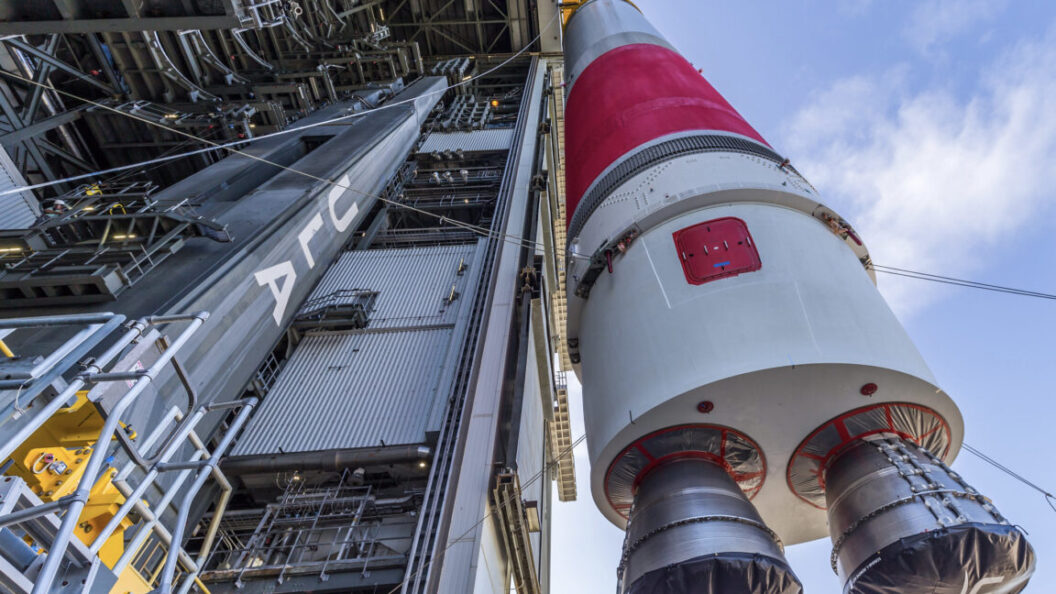ULA Shifts Focus to Amazon’s Kuiper Satellite Launch Amid U.S. Space Force Delays
Cape Canaveral, FL— United Launch Alliance (ULA) is making strategic adjustments to its launch schedule as it faces delays with the U.S. Space Force’s Space Systems Command in certifying its new Vulcan rocket. Currently, the Vulcan rocket, which has been stacked on its mobile launch platform, awaits official certification before it can conduct the USSF-106 mission, leaving ULA to pivot its attention to Amazon’s upcoming satellite launches.
Amazon’s Kuiper Network Takes Priority
In a significant development, Amazon’s first batch of production satellites intended for the Kuiper Internet network is now prioritized in ULA’s launch manifest. The e-commerce giant confirmed last month that these satellites will be shipped from its factory in Kirkland, Washington, to Cape Canaveral. These Kuiper satellites have been engineered to endure both the rigors of space and the transportation process. "These satellites will bring fast, reliable Internet to customers even in remote areas," Amazon stated on X, highlighting the broader implications of the project for connectivity.
Launch Manifest and Strategic Implications
Amazon’s partnership with ULA is pivotal for the deployment of its satellite network, which aims to compete with SpaceX’s Starlink. ULA has eight flights reserved using Atlas V rockets and an impressive 38 missions scheduled on the Vulcan launcher for Amazon, highlighting the extent of collaboration between the two companies. In total, Amazon has plans to deploy approximately 3,232 satellites. In addition to ULA, Amazon holds launch contracts with other space launch providers, including Blue Origin—founded by Amazon’s Jeff Bezos—and Arianespace.
ULA’s Rocket Inventory and Upcoming Plans
Fortunately for ULA, it has a substantial inventory of rockets ready for deployment. The company anticipates completing the manufacturing of the remaining 15 Atlas V rockets soon. This development will allow its Decatur, Alabama factory to concentrate on the production of Vulcan vehicles. “We have a stockpile of rockets, which is kind of unusual,” said ULA’s CEO, Tory Bruno. He emphasized the importance of being prepared for launches, stating, "Normally, you build it, you fly it, you build another one… I would certainly want anyone who’s ready to go to space able to go to space."
Future Certification and Launch Dates
Space Force officials have indicated that they aim to complete the certification process for the Vulcan rocket by late February or early March. This would pave the way for the USSF-106 mission following the launch of the Kuiper satellites. While the exact timeline for USSF-106 remains uncertain, it is projected to occur sometime between early April and late June, which marks nearly five years since ULA won its contract.
Conclusion: Industry Impacts and Future Considerations
The pivot toward Amazon’s Kuiper project underscores the evolving dynamics in the commercial space launch industry amid regulatory delays. ULA’s strategic focus on Amazon may not only bolster their partnership but also enhance competition in the satellite internet market. The successful launch of Amazon’s satellites could significantly impact rural and remote internet access, potentially reshaping connectivity landscapes.
As the space industry continues to evolve, the interplay between regulatory frameworks, technological readiness, and customer demands will remain a critical area to watch. The outcome of these launch initiatives is expected to influence not just ULA’s standing in the market, but also the broader landscape for satellite communications and launch services.









